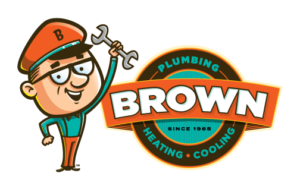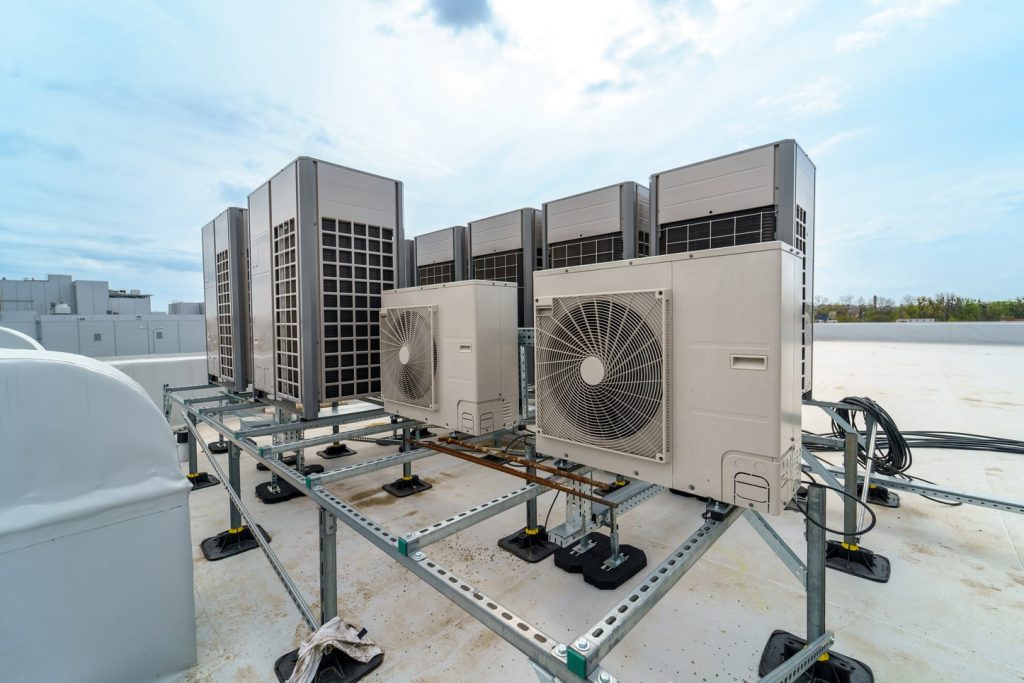Looking to upgrade your HVAC system in Palmetto, Florida but feeling overwhelmed by all the options available? Look no further!
In this article, we will provide expert tips on choosing the right HVAC system for your home, including factors to consider such as size, energy efficiency, and cost. We will also explore the different types of HVAC systems, maintenance tips, and why consulting with a professional is crucial.
Stay tuned to ensure your home stays comfortable year-round!
Factors to Consider when Choosing an HVAC System
Choosing the right HVAC system for your property in Palmetto, Florida involves considering several critical factors to ensure optimal home comfort and energy efficiency.
- One key factor to keep in mind is the size of the HVAC system, as choosing the correct size ensures efficient operation and consistent comfort levels.
Energy efficiency is another crucial aspect to focus on, as it not only reduces your energy bills but also minimizes your carbon footprint.
- When selecting a system type, it’s essential to weigh the benefits of options like central air conditioning, heat pumps, or ductless mini-splits.
Costs vary based on factors like size, brand, and additional features, so it’s wise to consider long-term savings versus initial outlay.
- Warranties play a vital role in protecting your investment, so be sure to inquire about the coverage length and what it includes.
Setting up a regular maintenance plan is key to prolonging the lifespan of your HVAC system and ensuring it operates efficiently throughout its lifetime.
Size and Capacity
When selecting an HVAC system, determining the appropriate size and capacity is crucial to meet the heating and cooling needs of residential or commercial properties in Palmetto, Florida.
Property owners in such locations should carefully assess their property’s size and layout to ensure that it aligns with the HVAC system’s capacity. Adequate assessment is vital to avoid an oversized or undersized system, which can lead to inefficiencies, poor performance, and increased energy costs.
By matching the system’s capacity to the property’s specific requirements, owners can enhance both efficiency and comfort levels. This tailored approach not only optimizes operations but also contributes to the longevity of the HVAC system, reducing the likelihood of premature wear and tear.
Energy Efficiency
Energy efficiency plays a pivotal role in selecting an HVAC system, with factors like SEER ratings and Energy Star certifications influencing long-term energy savings and environmental impact.
When considering SEER ratings, it is important to note that a higher SEER rating indicates a more energy-efficient system. SEER, which stands for Seasonal Energy Efficiency Ratio, measures the cooling output of an air conditioner over a typical cooling season, divided by the total electric energy input.
Energy-efficient HVAC systems with high SEER ratings not only consume less energy but also reduce greenhouse gas emissions, contributing to a greener environment. The efficiency benefits of these systems translate into lower utility bills for homeowners, as they require less energy to maintain comfortable indoor temperatures.
Type of System
Different types of HVAC systems, such as central air conditioning, ductless systems, and heating systems, offer varied features and benefits to cater to diverse property requirements.
Central air conditioning systems are known for their ability to effectively cool an entire home using a network of ducts to distribute conditioned air. On the other hand, ductless systems, also known as mini-split systems, provide individualized climate control for different zones in a house, offering flexibility and energy efficiency.
When it comes to heating systems, options like furnaces and heat pumps play a crucial role in maintaining a comfortable indoor temperature during colder months. Proper ventilation considerations are essential to ensure optimal air quality and energy efficiency in any HVAC system.
Cost and Budget
Determining the cost and budget for an HVAC system involves exploring financing options, budget-friendly choices, and cost-effective solutions that align with the property owner’s financial constraints and preferences.
- When considering budget-friendly alternatives for an HVAC system, it’s essential to look into efficient models that offer long-term energy savings, such as programmable thermostats, energy-efficient units, and regular maintenance plans. These investments not only help reduce monthly utility bills but also contribute to a more sustainable environment.
- Exploring financing options like rebates, incentives, and low-interest loans can make purchasing a quality HVAC system more accessible and affordable. By strategically planning and prioritizing budget considerations, property owners can make informed decisions that benefit both their finances and comfort.
Warranty and Maintenance Plans
Exploring warranty details and maintenance plans is essential when selecting an HVAC system to ensure long-term reliability, performance, and access to professional service agreements for routine care and repairs.
Having a comprehensive warranty and maintenance plan in place not only safeguards your investment but also provides peace of mind by covering unexpected repairs and replacements. Service agreements offered by reputable HVAC companies can include regular check-ups, tune-ups, and priority service in case of emergencies, ensuring that your system operates at peak efficiency. Regular maintenance plays a crucial role in extending the lifespan of your HVAC system, preventing costly breakdowns, and maintaining optimal indoor comfort levels throughout the year.
Types of HVAC Systems
Understanding the various types of HVAC systems, including central air conditioning, ductless options, heat pumps, and furnaces, provides insights into the diverse solutions available for heating, cooling, and ventilation needs.
- Central air conditioning systems function by circulating cool air through a system of ducts, effectively cooling an entire property through a centralized unit. These systems are commonly found in larger homes and commercial buildings due to their ability to maintain consistent temperatures across multiple rooms.
- Ductless HVAC options, on the other hand, offer targeted heating and cooling solutions for individual rooms or areas, making them ideal for smaller homes or spaces that lack ductwork.
- Heat pumps are versatile systems that can both heat and cool properties by transferring heat between the indoors and outdoors, offering energy-efficient operation.
- Furnaces, typically powered by gas or electricity, deliver warm air throughout a property via ductwork, providing reliable heating during colder months.
Central Air Conditioning
Central air conditioning systems offer whole-house cooling solutions, with considerations such as SEER ratings and energy efficiency contributing to effective climate control and indoor comfort.
These sophisticated systems utilize ductwork to evenly distribute cool air throughout the entire home, maintaining consistent temperatures in every room. The SEER ratings, which stand for Seasonal Energy Efficiency Ratio, indicate the efficiency level of the system – the higher the SEER rating, the more energy-efficient the unit. This not only results in lower energy bills but also reduces environmental impact. By using advanced technology, central air conditioning systems provide superior cooling performance while operating quietly and seamlessly in the background.
Ductless Mini-Split Systems
Ductless mini-split systems provide flexible cooling and heating options, incorporating zoning systems for targeted temperature control and enhanced energy efficiency in residential and commercial settings.
These innovative systems allow different areas or rooms within a property to be heated or cooled independently, providing personalized comfort levels based on occupants’ preferences.
With the ability to adjust temperatures in specific zones, ductless mini-split systems help reduce energy waste by not conditioning unused spaces. This zoning capability translates into cost savings on utility bills, as users can avoid heating or cooling entire areas of a property unnecessarily.
This targeted approach also caters to properties with varying heating and cooling needs, such as older buildings, multi-level homes, or room additions, where traditional HVAC systems may struggle to maintain consistent temperatures.
Ductless mini-splits function quietly and are easy to install, making them a versatile solution for properties seeking efficient climate control customization.
Heat Pumps
Heat pumps offer dual functionality by providing efficient heating and cooling solutions, promoting energy savings, climate control, and enhanced indoor comfort for residential and commercial properties.
These innovative systems work by transferring heat between the indoors and outdoors, utilizing the ambient air or ground temperature to regulate the internal environment. By leveraging this technology, heat pumps can deliver consistent performance regardless of external conditions, making them reliable solutions for maintaining optimal indoor temperatures.
In addition to their energy efficiency benefits, heat pumps also offer the flexibility to adjust settings according to specific comfort preferences, allowing users to customize their climate control experience efficiently and effectively.
Furnaces
Furnaces are essential components of heating systems, offering reliable warmth, efficiency ratings, and heating solutions tailored to the specific heating needs of properties in varying climates.
These heating units are renowned for their ability to quickly and effectively distribute heat throughout a home or commercial space. With efficiency ratings ranging from standard to high-efficiency models, furnaces allow property owners to choose the level of energy savings that best suits their budget and environmental concerns.
Whether you have a small apartment or a large industrial building, there is a furnace option available to match your heating requirements. From gas to electric furnaces, each type offers unique benefits and features to accommodate different property sizes and heating preferences.
Choosing the Right HVAC System for Your Home in Palmetto, Florida
Selecting the ideal HVAC system for your residence in Palmetto, Florida involves evaluating factors like climate considerations, home layout design, and professional consultations to ensure optimal indoor air quality and comfort.
When it comes to choosing the right HVAC system for your home in Palmetto, it’s crucial to take into account the specific climate patterns of the region. Palmetto experiences warm and humid summers, average to mild winters, and occasional extreme temperature fluctuations. These conditions highlight the importance of selecting an HVAC system that can effectively regulate humidity levels and provide sufficient heating and cooling throughout the year.
Conducting a thorough assessment of your home’s layout, such as square footage, number of windows, ceiling height, and insulation quality, is essential in determining the appropriate size and capacity of the system required. Expert consultations with HVAC professionals can further guide you in understanding the specific indoor air quality needs of your home and selecting the most suitable system to meet those requirements.
Consider the Climate
When selecting an HVAC system, considering the climate of Palmetto, Florida is crucial for ensuring energy-efficient solutions that address specific humidity levels and temperature control requirements.
Palmetto’s warm and humid climate poses challenges that require tailored HVAC systems to maintain indoor comfort effectively. High humidity levels in Palmetto can make it harder for traditional HVAC systems to efficiently cool and dehumidify the air, leading to potential energy wastage. Energy-efficient strategies like incorporating variable refrigerant flow systems or smart thermostats can help optimize energy consumption while managing humidity levels effectively. Selecting HVAC systems with high SEER ratings can enhance energy efficiency in Palmetto’s hot and humid climate.
Think about Your Home’s Layout
Assessing your home’s layout is essential when choosing an HVAC system, with considerations for ductwork, ventilation needs, and zoning systems playing a significant role in optimizing comfort and efficiency.
Understanding the layout of your home is crucial as it directly impacts the effectiveness and performance of your HVAC system. Properly assessing the layout helps ensure that the ductwork is efficiently designed to distribute air evenly throughout the house, avoiding issues like hot or cold spots.
Ventilation considerations are key in maintaining indoor air quality and regulating humidity levels. By incorporating zoning systems, homeowners can customize the temperature of different areas according to individual preferences, leading to enhanced comfort and energy savings.
Consult with a Professional
Seeking professional consultations from experienced technicians with local expertise can provide valuable insights and recommendations for selecting and installing the most suitable HVAC system for your Palmetto, Florida residence.
These professionals possess in-depth knowledge about various HVAC systems, energy-efficient options, and cost-effective solutions that align with your specific needs and budget constraints. By consulting HVAC experts, you can ensure a seamless installation process, optimal system performance, and long-term durability.
Their tailored recommendations take into account factors such as the size of your home, local climate conditions, and your desired comfort levels, resulting in a customized solution that maximizes efficiency and comfort. Relying on their expertise can help you avoid common pitfalls and potential issues, saving you time, money, and unnecessary headaches in the long run.
Maintenance and Care for Your HVAC System
Maintaining and caring for your HVAC system is essential to ensure efficient operation, longevity, and performance, with regular maintenance, cleaning, inspections, and preventative care contributing to optimal functionality and energy savings.
By regularly cleaning or replacing air filters, you can prevent blockages and ensure proper airflow, which in turn improves system efficiency. Conducting visual inspections for leaks, debris, or unusual sounds can help in identifying potential issues early.
Seasonal maintenance, such as checking refrigerant levels before summer, ensures your system operates smoothly. Scheduling professional maintenance at least once a year can address more complex issues and keep your HVAC system in top condition.
Regular Maintenance
Regular maintenance for your HVAC system, including scheduled service appointments and professional care, is essential to ensure consistent performance, longevity, and adherence to service agreements for optimal system operation.
By investing in regular professional maintenance, you not only extend the lifespan of your HVAC system but also enhance its energy efficiency, cutting down on utility costs in the long run. Service agreements provide peace of mind, ensuring that your system is regularly checked and serviced according to a set schedule. Scheduled care routines help catch minor issues before they escalate, preventing costly repairs and potential breakdowns. With proper maintenance, you can enjoy a comfortable indoor environment and avoid sudden system failures that disrupt your daily routine.
Changing Air Filters
Routine air filter changes are crucial for maintaining indoor air quality, system efficiency, and airflow performance in HVAC systems, ensuring clean and healthy air circulation throughout your property.
Regularly replacing air filters in your HVAC system plays a significant role in safeguarding the air you breathe indoors. By changing the filters as recommended, you prevent dust, dirt, allergens, and other particles from circulating and contaminating your living spaces. This simple maintenance task not only fosters a healthier environment but also promotes optimal system performance by reducing strain on components and ensuring proper airflow.
Over time, neglected air filters can lead to decreased air quality, increased energy consumption, and potential system breakdowns.
Cleaning Ducts and Vents
Regular cleaning of ducts and vents in HVAC systems is essential to prevent blockages, improve airflow, enhance ventilation, and maintain optimal filtration for clean and healthy indoor air quality.
Over time, dust, debris, and even mold can accumulate within the ductwork, leading to obstructions that hinder the smooth flow of air. By regularly cleaning these ducts and vents, you not only ensure that your HVAC system operates efficiently but also promote better ventilation throughout your living or working space. Improved airflow not only enhances the overall performance of your heating and cooling systems but also helps in maintaining consistent indoor temperatures. Clean ducts aid in maintaining the filtration system’s effectiveness, ensuring that the air circulating in your home is free of contaminants and allergens.
Scheduling Professional Inspections
Scheduling regular professional inspections by certified technicians ensures early detection of issues, compliance with service agreements, and proactive maintenance to optimize the performance and longevity of your HVAC system.
These inspections go beyond just checking for visible problems; they involve a thorough examination of all components to identify potential issues before they escalate. By having certified professionals conduct these inspections, you can rest assured that any problems will be addressed promptly and effectively, reducing the risk of unexpected breakdowns and costly repairs.
Adhering to a service agreement with a certified technician ensures that your HVAC system receives the necessary care it needs, leading to improved energy efficiency and lower utility bills over time. Proactive maintenance strategies employed by certified technicians can extend the lifespan of your HVAC system, saving you money in the long run.”


